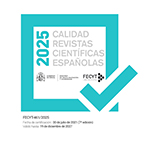Authority and Authorship, Tradition and Invention, Reading and Writing in Early Medieval Compilation Genres
the Case of Hrabanus Maurus’ De ‘institutione clericorum’
Résumé
From a literary point of view, the Early Middle Ages can be defined as an age of compilation. However, the nature of medieval compilation has often been misunderstood. This is because scholars have limited themselves to identifying the source-texts, ignoring deeper aspects such as the nature of tradition and authority, the scope of the compilation and the modes of reception, as well as the recontextualization process that compilation implies. When Hrabanus Maurus composed his De institutione clericorum in 818 he borrowed between sixty and seventy per cent of the matter from previous authors, and in fact far from pretending being original, what Hrabanus claims is not originality, but authority, although by the interweaving of his materials and with his relatively few adds he managed to create a different resulting product with a new personality. Using as a case study the De institutione clericorum, this article addresses the problems posed by the compilation process in relation to the educational methods –mainly mnemonic training – and the spiritual practices of the Carolingian renaissance, specifically the lectio divina and the ruminatio.











